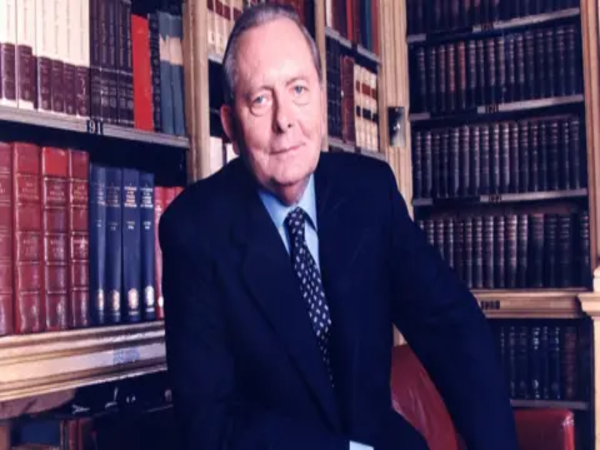Brian Walden: The Legendary Broadcaster and Political Interviewer
The Voice of Politics on British Television

Brian Walden was a British journalist, broadcaster, and former Labour politician who made an indelible mark on the landscape of political communication. Known for his sharp intellect, relentless questioning, and fearless pursuit of truth, he transitioned from serving as a Member of Parliament to becoming one of the most respected interviewers in the history of British broadcasting. His career, spanning politics and media, cemented him as a household name and an enduring figure in public life.
Early Life and Education
Brian Walden was born as Alastair Brian Walden on 8 July 1932 in West Bromwich, Staffordshire, England. Coming from a working-class background, his academic brilliance earned him a scholarship to The Queen’s College, Oxford, where he studied history and displayed early leadership potential. He later pursued postgraduate studies at Nuffield College and became president of the Oxford Union in 1957, a role that foreshadowed his oratorical skills and future in public affairs.
At Oxford, Walden earned a reputation for his debating abilities and political insight, qualities that laid the foundation for both his parliamentary career and later success in broadcasting.
Brian Walden’s Age and Legacy
Brian Walden was born in 1932 and passed away on 9 May 2019 at the age of 86. Over his long life, he not only served his country as a Labour MP but also influenced generations of politicians and viewers through his unique interviewing style. His age reflects the depth of experience he brought to every role, bridging the worlds of politics, media, and public service.
Political Career: From Parliament to the Public Eye
Walden entered politics in 1964, when he was elected as the Labour MP for Birmingham All Saints. After constituency changes, he later represented Birmingham Ladywood, serving in Parliament for more than a decade until 1977.
During his tenure, Walden was known for his strong debating skills and independent spirit. He often supported liberal policies, advocating for reforms in gambling and drug laws, which earned him the label of a progressive thinker within the Labour Party. Despite his promise as a politician, Walden resigned from Parliament in 1977 to pursue his passion for broadcasting, a decision that would define the next chapter of his life.
Transition to Broadcasting
After stepping down from Parliament, Brian Walden became the host of Weekend World on London Weekend Television. His tenure on the program, which lasted nearly a decade, transformed Sunday political interviews into a national event. With his razor-sharp questioning, he could dismantle political rhetoric and expose inconsistencies with clarity and precision.
His approach was both relentless and respectful. Walden prepared meticulously for every interview, reading widely and anticipating his guest’s arguments. Politicians often found him tough but fair, a hallmark of great journalism. His style influenced a generation of interviewers and set the gold standard for political broadcasting in Britain.
The Walden–Thatcher Dynamic
One of the most memorable aspects of Brian Walden’s broadcasting career was his relationship with Margaret Thatcher. Walden conducted several landmark interviews with the Prime Minister during the 1980s. While Thatcher respected his intellect and professionalism, their exchanges were famously intense.
In one of his most cited interviews in 1989, Walden pressed Thatcher on her leadership style, suggesting she appeared domineering and authoritarian. Thatcher retorted sharply, accusing him of being domineering in the interview itself. This fiery exchange showcased Walden’s fearless approach and became an iconic moment in British television history.
Brian Walden as a Journalist
Beyond Weekend World, Walden hosted programs such as The Walden Interview and Walden. He also contributed to BBC Radio 4, where his reflective commentaries continued to shape political discussion. His ability to combine historical knowledge with contemporary insight made him a trusted voice on British politics.
Walden’s journalistic integrity was widely respected. Unlike interviewers who sought sensationalism, he focused on substance. His interviews were conversations of ideas rather than confrontations of personalities. This intellectual depth elevated political journalism in the UK and earned him several broadcasting awards, including the BAFTA Richard Dimbleby Award in 1986.
Brian Walden Wikipedia: A Public Record of a Public Life
The Brian Walden Wikipedia page provides a factual overview of his career, family, and contributions. It highlights his dual identity as both a Labour MP and a broadcaster, reflecting his lasting influence in two very different arenas. While Wikipedia captures the milestones, Walden’s true impact lies in the respect he earned from peers, politicians, and audiences alike.
Brian Walden Family
Brian Walden was married three times. He first married Sybil Blackstone, followed by Jane McKerron, with whom he had children, including Ben Walden, who became an actor. Later, he married Hazel Downes, with whom he shared a long marriage of more than four decades.
Family played an important role in Walden’s life, even as his career demanded public attention. His children and spouses often witnessed firsthand the pressures of political and media life, but they also shared in his achievements and legacy. Despite the public nature of his career, Walden valued privacy in his personal relationships.
Brian Walden Net Worth
While exact figures about Brian Walden’s net worth were never publicly disclosed, it is understood that he accumulated wealth through his parliamentary career, broadcasting work, and public speaking engagements. As a top political interviewer and respected journalist, Walden commanded influence and a comfortable lifestyle. However, unlike many public figures, he never flaunted wealth, preferring a life of intellectual pursuits over material displays.
His net worth, though less a matter of numbers, is best measured in his impact: the value of his contributions to journalism, political thought, and public discourse.
Awards and Recognition
Walden’s work earned him widespread recognition:
BAFTA Richard Dimbleby Award (1986) for outstanding broadcasting.
Named ITV Personality of the Year (1991).
Multiple industry awards for his excellence in political journalism.
These accolades reflect the esteem in which he was held, not only by audiences but also by his professional peers.
Later Years and Final Days
In his later years, Walden retired to Guernsey, where he lived a quieter life away from the spotlight. He continued to write and occasionally appeared in public discourse but preferred a more private existence.
On 9 May 2019, Brian Walden passed away at his home in Guernsey at the age of 86, due to complications related to emphysema. His death was widely mourned across Britain, with tributes pouring in from politicians, journalists, and broadcasters who regarded him as a mentor and pioneer.
Brian Walden’s Influence on Modern Journalism
Brian Walden’s interviewing style continues to serve as a template for modern political journalism. His combination of thorough research, incisive questioning, and intellectual curiosity raised the standard of political interviews. In an era when soundbites often dominate media, Walden’s long-form, in-depth conversations remain a benchmark of quality journalism.
Contemporary broadcasters often cite him as an inspiration, acknowledging that his methods encouraged accountability and fostered more informed public debate.
Conclusion: A Legacy of Integrity and Tenacity
Brian Walden’s life reflects the journey of a man who bridged the worlds of politics and journalism with brilliance and integrity. From his early days as a Labour MP to his celebrated career as a broadcaster, he demonstrated an unwavering commitment to truth and clarity.
Whether measured by his age, his family, his work documented on Wikipedia, or even his net worth, Brian Walden’s legacy lies not in statistics but in the enduring respect he commanded. He remains one of Britain’s finest political interviewers—tenacious, fearless, and unforgettable.



